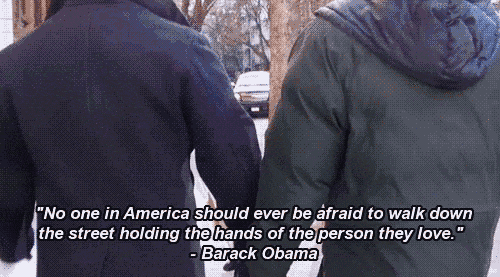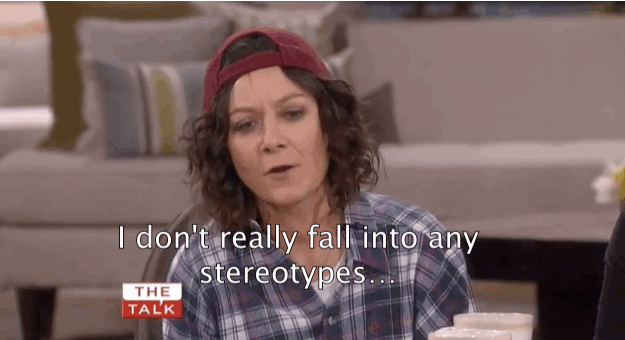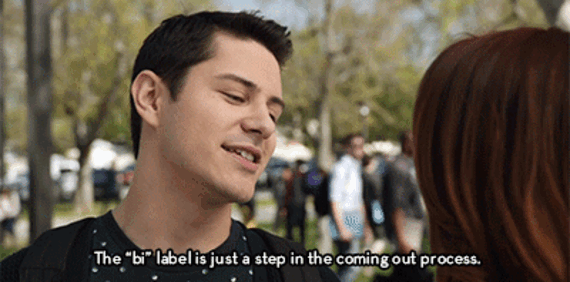Society today is constantly influenced by the mass media surrounding us. Television, films and social media have affected the way we live our lives both directly and indirectly. Millennials receive instant gratification through Twitter, Instagram, even Netflix. The internet allows information to be accessible through a few clicks of a mouse or touches with a finger. In June 2015, gay marriage was legalized throughout the United States. Almost immediately, the hashtag #LoveWins was trending. LGBT+ celebrities and allies such as President Obama, Ellen Page, Harry Styles and Yoko Ono posted in solidarity with the Supreme Court decision.
Despite the landmark court decision, members of the LGBT+ community have still experienced discrimination and prejudice. Before the 1960s, there were no depictions of LGBT characters in television or film. Although in modern day there has been an increase in LGBT+ characters, the representations are not always accurate.
Growing up, I struggled with my sexuality. I did not have any role models within the gay community that I could look up to. As a result, I turned to mainstream media in an effort to identify with gay characters. I realized it was difficult to find representation in the media. The characters I did watch often portrayed stereotypes, making it hard to relate to them.
It is important for youth to have realistic depictions of characters within the media in order to help them develop their own identities. This is especially crucial for adolescents within the LGBT+ community who are struggling to understand themselves. Despite a few niche networks created for gay and lesbian oriented media, the mainstream media does not have adequate representation of the LGBT+ culture. Without any accurate portrayals of this minority in the media, the members who belong to it will not have any role models and will become subject to prejudice and discrimination.
Television and films can be a great resource to expose cis, heterosexual people to individuals who are LGBT+. By exposing heterosexual people to gay characters, they are more likely to accept homosexuality. In our society, individuals form their opinions based on what is portrayed in the media. As a result, it plays a crucial role in how others are treated.
Without proper representation, LGBT+ youth will struggle to understand their identities. For example, when I was younger, I couldn't relate to the lesbian characters on television or in movies because they were always depicted as the typical masculine, butch stereotype. As a feminine woman, I felt that I didn't belong or that I must have been wrong about my sexuality. On the contrary, gay men are depicted as feminine guys who dress well and love theater the majority of the time.
When media consumers don't interact with a variety of social groups, they lack information on numerous subcultures. This leads to uneducated and uninformed opinions. Furthermore, some youth may conform to the media depictions of LGBT+ characters in order to create a sense of belonging.
Additionally, whenever LGBT+ characters are seen in media they are often secondary characters. Narratives have been created, often fueled by stereotypes, that LGBT+ people fill. For instance, MTV created a show titled "Faking It". The show follows two best friends who pretend to be lesbians in order to gain popularity at their high school. One of the girls, Amy, begins to question her sexuality and falls for her best friend, Karma. Within the show, Amy fits the stereotype that feminine girls who question their sexuality are just confused and probably not gay. Another character, Shane, fits the stereotype that gay men are witty, comical, characters who love drama and receiving attention. Scripts are designed to have supporting characters such as the gay best friend who loves to go shopping or the lesbian who's "too into feminism" and hanging out with the guys. These inaccurate representations and portrayal of stereotypes create an aura of negativity surrounding the LGBT+ community and can lead to homophobia.
Despite the niche networks created in an effort to supply LGBT+ characters with accuracy, their efforts have been widely unsuccessful. It's essential that the media creates more characters that accurately portray the LGBT+ community. This development would help adolescents understand their identities and allow their families to become more accepting. There needs to be a shift from the supplementary characters portrayed as false stereotypes to powerful individuals who are proud of their identities. After that occurs, LGBT+ youth will not experience homophobia and intolerance the way they have in the past. As a result, our society will become a culture that promotes acceptance and diversity for people of all minorities and backgrounds.
























